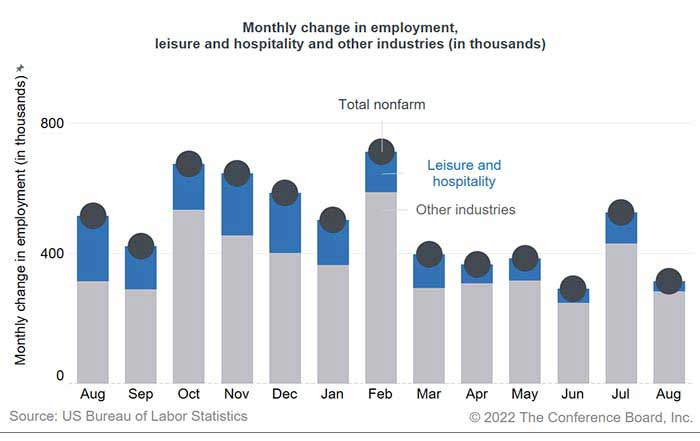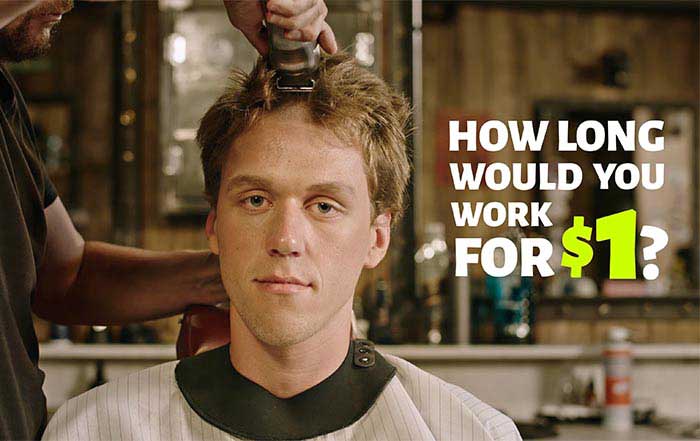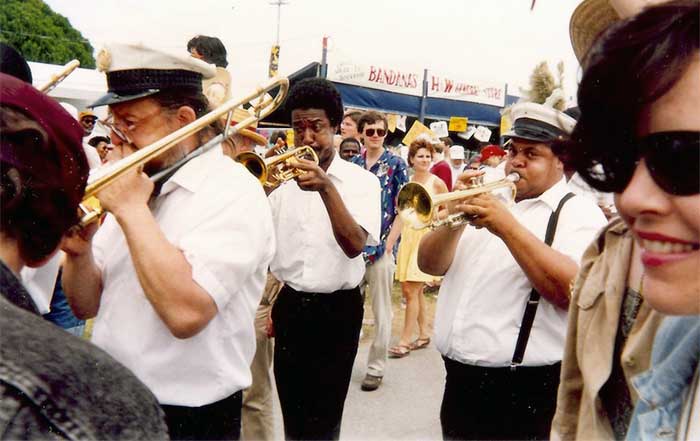Timed with July 7 World Chocolate Day, Fairtrade America, the world's most recognized label for social justice and sustainability, has launched a national campaign to generate broader awareness of the unjust price that farmers receive to produce the goods that we rely on everyday, including cocoa. The "It's Only Fair," campaign features three videos connecting shoppers in the U.S. to smallholder cocoa farmers in West Africa and the dire issues farmers are facing around the world by disrupting people's routines with the simple question, "How long would you work for $1?" Because of the unfair and unjust realities of the global food market, many cocoa farmers work an entire day for between $0.78-$1.00[1]. That's significantly below the international poverty line. Through this new campaign, Fairtrade America hopes to turn this big global issue into a more relatable problem, inspiring viewers to pause, reflect, learn and share about the impact unfair trade has on farmers and workers around the world.
Globally, cocoa and chocolate together are a $48.29 billion industry[2] that is expected to grow, yet cocoa farmers are currently battling inflation, rising production costs, the climate crisis and COVID-19 related challenges while the price they earn for cocoa hasn't risen to meet these changes. As they navigate these challenges, they are asking for the same fair business practices and respect any entrepreneur would desire - a fair deal - so they can have a sustainable future in farming.
Smallholder, family-run farms with less than five acres of land and average yield between 1,300-1,760 lbs per year of cocoa provide 90% of the world's cocoa beans[3]. The cocoa industry is an important source of revenue for about 50 million people, including 5 million farming households.[4] Two cocoa farmers from Ghana, Deborah Osei-Mensah and Solomon Boateng, share just how important it is to their families and communities to get a fair deal.
Deborah Osei-Mensah - Livelihood Development Officer of Ghana's Asunafo North Farmers Union, leader of the union's Monitoring and Evaluation Team and Fairtrade Youth Ambassador. "My cooperative produces cocoa and includes close to 10,000 cocoa farmers from 67 communities. I'm currently the Operations Manager in charge of child protection, gender and livelihood issues. Fairtrade has transformed me. While I used to be shy, I am now more confident both in my farming business and life. I've also seen first-hand the evolving business side of cocoa. In my role with Asunafo, I am honored to help train other women to diversify their incomes beyond cocoa, and I am working to achieve my Masters of Science in Environment, Water and Sustainability from the University of Energy and Natural Resources in Ghana to be able to help my community better mitigate the challenges of climate change. My community and I ask for businesses to commit to supporting farmers in producing your cocoa and offer a fair deal; for consumers to be conscious about what they are consuming. Be fair, purchase fair and, with that, make the future fair - there's just one world and we should be supporting each other within it."
Solomon Boateng - Certification Risk Manager, Kuapa Kokoo Farmers Union. "At Kuapa Kokoo, the Fairtrade Premium has been used in various ways for us to reinvest in our cocoa farms. The program is so important in terms of making sure our community has the resources that are necessary to combat challenges, like climate change. For example, last year we utilized our premium to distribute over 160,000 shade trees to our farmers in an effort to protect our cocoa trees from the rising temperatures in Ghana, and this year we are supplying more than 150,000. When you look at the cocoa pricing system, it's clear that farmers are not getting what we should. We are asking businesses to do business with us - fair business. Farmers are business people and want the respect that those in America look for when doing business, too. With the newest challenge of inflation upon all of us, some producers are facing the issue of not being able to stay in production at all. Pay us a fair price for the work we do and goods we produce, especially if we want these goods to be around in the next few decades."
Because of unfair trading practices, many farmers and workers around the world can't make a living wage, no matter how hard they work. Extreme poverty can also lead to other problems, like deforestation and child labor. Farmers are forced to answer unthinkable questions, like "Should I preserve this forest? Or should I clear it to feed my family?" These problems aren't new. For decades, corporations and governments have seen and ignored them or failed to address the root of the issue - poverty. The promising news is that as more and more consumers demand change, companies and governments will need to take action. A recent study found that shoppers in the U.S. are willing to pay up to 30% more per bar for Fairtrade chocolate[5], so why aren't we?
"Farmers aren't getting a fair deal. This is not only unjust, it is also unsustainable," shared Peg Willingham, Executive Director of Fairtrade America. "Fairtrade believes that everyone deserves a decent standard of living. It's only fair to pay a price that supports an existence worthy of human dignity."
A recent report from Mainlevel Consulting and commissioned by Fairtrade found that Fairtrade positively impacts certified farmers and their communities when compared to non-Fairtrade certified farmers, particularly in times of difficulty and distress. However, researchers also identified significant challenges that risk undermining the gains Fairtrade farmers have achieved and that threaten their livelihoods. The advantages of the Fairtrade system are falling under increasing pressure from compounding global calamities such as the climate crisis, COVID-19, and prices that are too low to cover rising costs of farming and daily life. The study also warns that progress toward reducing poverty – as well as the goal of achieving living incomes – will be stalled, if not reversed, if farmers are not paid more.
The 15-second videos at the heart of the campaign feature three scenarios, a barber shop, a tanning salon and a kid's birthday party to show how long workers in the U.S. might work for just $1. No surprise - it's not very long. Though the ads are humorous and meant to catch viewers' attention quickly, the issues they tackle are complex and require all actors along the supply chain, including traders, governments, brands and consumers, to take action to ensure cocoa farmers are paid enough to have a decent living. With the videos, Fairtrade America is encouraging consumers to consider the impact that their purchasing decisions are having on others around the globe and spark conversations about what can be done to change the situation. Simple shifts, like choosing a chocolate bar with the green and blue Fairtrade Mark - a certification that shows farmers got a fairer deal and their commodities were sourced in compliance with Fairtrade's rigorous environmental, social and economic Standards - during a trip to the grocery store can have a positive impact on the nearly 2 million farmers and workers participating in Fairtrade around the world.
"We hope these videos first get viewers to chuckle, and second help them consider how little $1 a day in pay truly is," continued Willingham. "Farmers work extremely hard to produce our favorite goods like cocoa, coffee and bananas, while struggling with challenges like extreme weather from climate change and rising costs. We hope these videos get people talking about these issues and motivate them to make thoughtful purchases with people and the planet in mind whenever possible."
Fairtrade America is asking consumers to share the videos and help spread the word about unfair trade practices by starting conversations with friends and loved ones about the benefits of Fairtrade
"Now, more than ever, we must listen to farmers and workers around the globe. As we continue to face inflation, we must consider those who make less than $1 per day producing the goods we often take for granted in the U.S. and how they are experiencing the same, and even worse, conditions. We hope these videos bring positive awareness to the need to pay farmers a living wage and ignite a call to action for change. Choose a fairer deal. Choose Fairtrade," urged Willingham.
Fairtrade America works to rebalance trade, making it a system rooted in partnership and mutual respect rather than exploitation. It's about businesses, shoppers, farmers and workers all partnering so we can all experience the benefits of trade. Fairtrade America is the US chapter of Fairtrade International, the original and global leader in fair trade certification with more than 30 years of experience working for fair trading practices in more than 30 countries across the globe. A non-profit 501(c)3 organization, Fairtrade America is the world's largest and most recognized fair trade system—part of a global movement for change.




